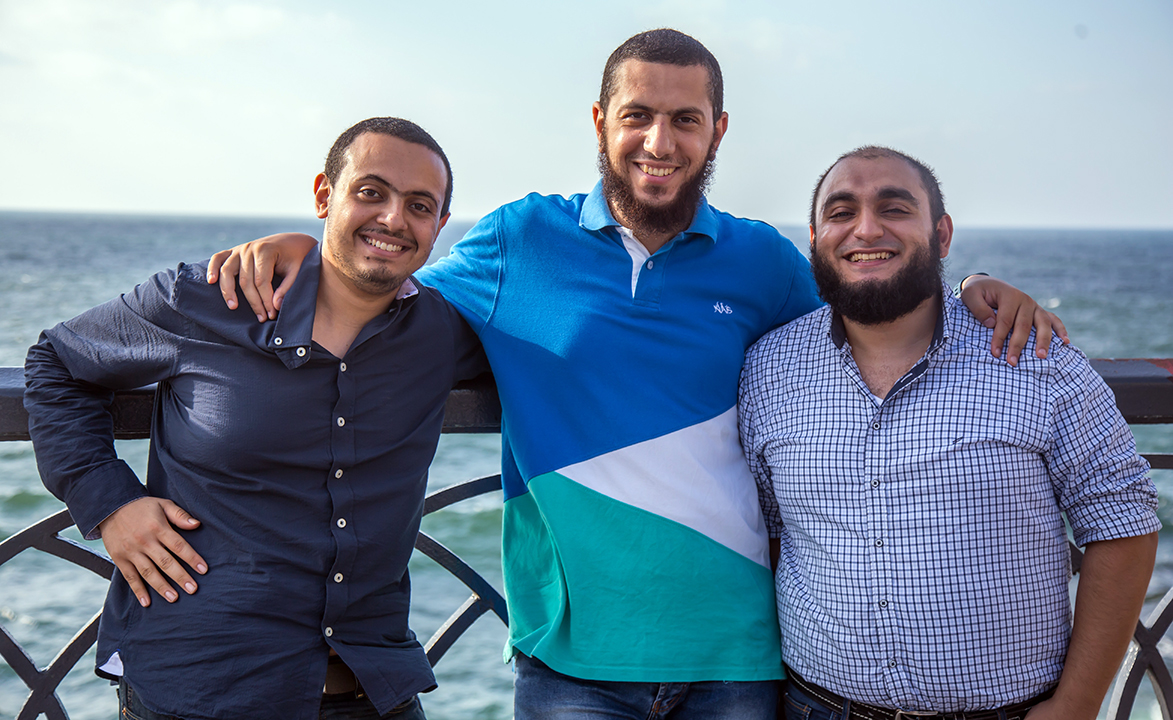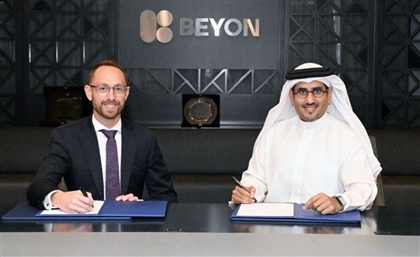Meet The Egyptian Team That Won 2nd Place At Hajj Hackathon
We sit down with the Alexandrian developers behind a virtual wallet that promises secure cashless transactions for Muslim pilgrims in 2030.

Due to the crowds in Hajj, an average of 3 million Muslim pilgrims are prone to face theft and fraud during their Hajj observances. In fact, in this year’s Hajj season, unidentified women were reported to have stolen $2,500, two mobile phones, from pilgrims while they performed Tawaf– a Hajj practice that involves circling the Ka’baa. Last year, 25 men were arrested for stealing 80 cell phones and over $13,335.
To fix problems like these, Saudi Arabia has brought together around 3,000 coders and tech entrepreneurs to engage in a three-day hackathon to bring about tech solutions to the ancient Muslim ritual. This comes in line with Saudi Crown Prince Mohamed Bin Salman’s ambitions to reduce the kingdom’s dependence on oil, and in turn convert his future realm – which grew on fossil fuel - into a kingdom of tech, innovation, and renewable energy. The fruits of the Hajj Hackathonare purposed to be up and running by 2030, which marks Saudi’s vision; a plan to diversify the kingdom’s economy, and develop public service sectors such as health, education, infrastructure, recreation and tourism.
“The Hajj Hackathon involved areas such as Infrastructure, Waste, and Crowd Management,” Abdel Malek Mohamed tells Startup Scene. “But what really hit close to home was fintech.” Mohamed led a team that developed a virtual wallet to help pilgrims move around with as minimal paper money as possible.
Nothing was planned and everything fell in place very quickly. Mohamed’s colleague, Mahmoud Khaled, was sunbathing at one of Marsa Matrouh’s golden beaches when he got a phone call telling him he has to take a flight from Cairo in 10 hours. “I was with my family, so I had to drive them home in Alexandria, pack, and head off to Cairo to catch my flight to the hackathon,” Khaled tells Startup Scene. “So, things were a bit tight, but it was all worth it.”
Mahmoud arrived at the airport and bumped into Mohamed. “I had no idea he would be traveling with us,” he says. “We already knew each other, but as mere acquaintances. The friendship wasn’t formed until after the hackathon.”
Mohamed knows that the idea behind the Hajj Wallet wasn’t new. They weren’t the only coders working on a virtual wallet at the hackathon. “However, the edge is in the execution,” he says. Moreover, Mahmoud believes that the market is huge and has plenty of room for many apps to tackle one problem. “We were motivated to work on this solution because we ourselves faced this problem once we arrived to Saudi,” he says. On arrival, the twenty-something-year-olds went shopping for some necessities before heading to the hotel. They had no change on them; taking it for granted that the stores would have, but store they were shopping from didn’t have change either. “If we had a virtual wallet, we would’ve easily been able to pay the store without needing to have cash in hand,” Mahmoud reflects.
Other than that, the team faced another transactional challenge upon their arrival. Mahmoud needed some money from Tarek, the Saudi-based graphic designer on their team, who arrived two days after Mahmoud and Mohamed’s arrivals. “What happened was that I had to wait for Tarek to arrive and give me the paper money. So, we were experiencing this need; both incidents inspired us to work on the Hajj Wallet,” Mahmoud adds.
Once the pilgrim arrives at Saudi Arabia, he would be able to exchange his money from one of the nearest accredited forex distributors affiliated with Hajj Wallet. The money transfers to his mobile app, and through the app he could do all his transactions without holding any paper money.
Hajj Wallet’s revenue stream relies mainly on the commission from transactions as well as advertisements. “The advertisements on the app come in many shapes; such as featured and recommended places, special offers, sales, which are all tailored for each user based on their geolocation,” Mohamed clarifies. “
Even though the team didn’t formulate before the hackathon, but each one of them came with a passion for two things. “We are passionate for coding and developing applications because after all this is the nature of what we do for a living,” Mohamed says. “But also, another passion was driving us; the passion to serve Muslim pilgrims.”
In order to perfect the product, the team had to focus on several aspects, such as graphical user interface and they also added a part for e-commerce to get vendors involved as well to encourage and gain the pilgrims’ trust. Developing a seamless, integrated virtual wallet for 3 million users to use simultaneously, is a real challenge considering scalability and security. “We are talking about very sensitive data which needs to be very secure, so that no problems occur during transactions,” says Mahmoud.
- Previous Article Sharjah's Smart Crowd Wins Best Startup in UAE
- Next Article Blockchain And Business Do Not Mix






















